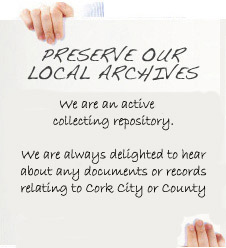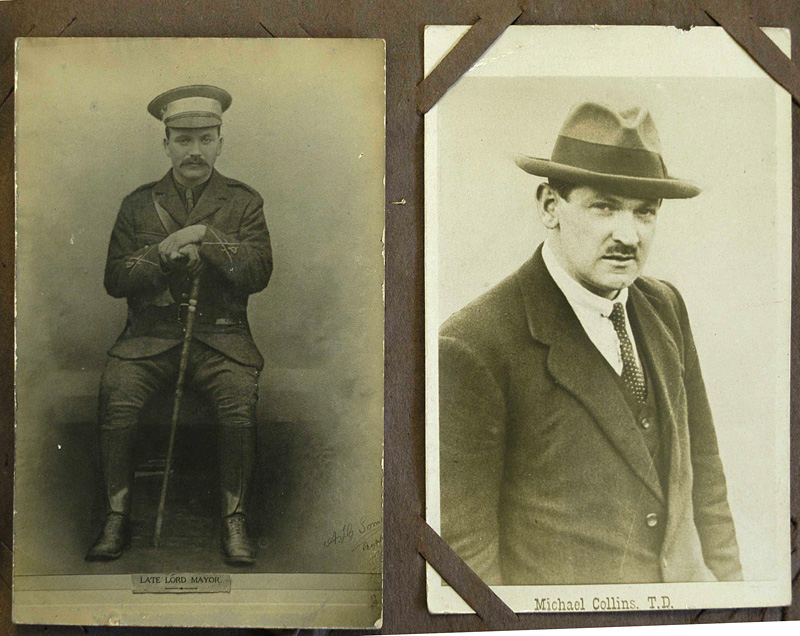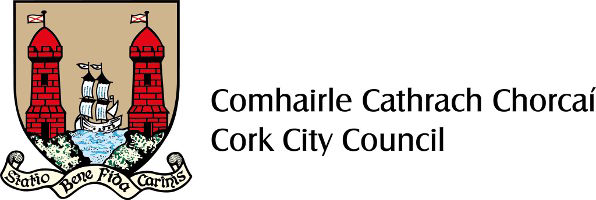Deposit Archives

Depositing an Archive
We are an active collecting repository and we are always delighted to hear about records, photographs, documents, and ephemera (in all formats) from/relating to Cork city and county.
Local archives from Cork document many unique aspects of the history and heritage of our city and county, organisations, and people.
By depositing archives in CCCA, depositors are ensuring that they are properly preserved and made appropriately available for research, and that they will be a permanent public resource as part of Cork's public records.
Depositing an archive is a major contribution to our local heritage, history, culture, learning and research.
We are immensely grateful to all of those who have donated archives collections thus adding unique chapters to the History of our city and county.
CCCA is Cork's public archives service, established in 1971-2. We are a section of, and operated by, Cork City Council, and we are also jointly funded and supported by Cork County Council and University College Cork. We are responsible for preserving local archives from Cork city and county and making them appropriately available for research.
Under the local government acts, it is a statutory function of the Council to acquire local archives, to ensure their proper management, custody, care and preservation, and to make them available for public research and inspection. Local archives includes local government records of enduring value, and deposited archives acquired by purchase, donation, bequest or loan.
We are the designated local repository for Cork's local archives.
Our mandate and policy is to acquire and preserve local archives, which are unique local records and documents of enduring value, relating to and generally originating from, Cork city and county.
(Note: archives from national government and state agencies are the responsibility of the National Archives of Ireland in Dublin).
We acquire unique corporate/organisational, and personal/family records of enduring value and research interest.
Acquired records will be appraised, by an archivist, as having enduring archival and research value.
Our particular acquisition mandate is to preserve and make accessible the archival heritage of Cork. This was approved by Cork City Council, Cork County Council and University College Cork. It is also a statutory function under the Local Government Act 2001.
Our collection acquisition mandate to date has comprised:
- Local government archives
- Health/hospital/home archives
- Business archives
- Clubs & societies archives
- Theatre archives
- Trade union archives
- Photographic archives
- Personal and family archives
- School archives
- Solicitors papers
- Landed estate papers
- Religious institution archives
- Maps, plans and architectural drawings
- Ephemera
- Archives collected/compiled by local historians
- Audio/oral history recordings
We have particularly strong existing collection holdings in the following subject areas / periods:
- Local government and health authorities 1600s - 1900s
- 17th, 18th, 19th, and 20th century
- Social and economic history 1700s - 1900s
- Hospital/ home records 1870s - 1900s
- Clubs, societies, trade unions, theatre 1800s-1900s
- Irish politics and nationalism 1800s - 1900s
- Irish Revolutionary Period 1912-1923
- Businesses 1700s - 1900s
- Solicitors/landed estate records 1600s - 1900s
- Personal papers 1700s - 1900s
- Ephemera 1800s - 1900s
- Photographs 1800s, 1900s
Documents and records acquired can be hard copy or digital, and of any type or format, for example:
- Manuscript and typescript and printed documents
- Diaries, journals
- Correspondence
- Files
- Bound volumes e.g. minute books, account books, letterbooks, scrapbooks
- Maps and architectural plans and drawings
- Legal documents, deeds
- Photographic albums, prints, slides, film, negatives
- Digital photographs, documents and files.
- Printed ephemera e.g. collections of one-off concert or match or commemorative programmes, almanacks, directories, booklets and leaflets, posters, tickets etc.
- Audio/visual recordings
- Electronic records and documents
Exclusions:
We do not, in general, acquire collections of published books, journals or magazines, although small numbers of these may form part of an acquired archive.
We do not, in general, acquire collections of objects or archaeological artefacts, or non-documentary memorabilia, although small numbers of these may form part of an acquired archive.
We do not acquire a collection where its' possession and ownership is in dispute or illegitimate.
- We will ensure proper preservation, research access, and management of local archives
- Archives deposited in the CCCA are preserved and managed under proper archival conditions in a purpose built archives repository, the Seamus Murphy Building.
- Archives are managed in accordance with archival best practice, and under the management of qualified and experienced professional archivists.
- Data Protection/Privacy concerns: We have the training, capability, and legal basis, to preserve and manage archives containing personal data (Local Government Act 2001/GDPR)
- Damage treatment, repairs and conservation of archives are carried out.
- We compile detailed lists and finding aids of collection contents to the highest international standards
- Research/access, security, storage, and handling of archives are strictly managed.
- CCCA has excellent digitisation capabilities and extensive online services.
- We have an active programme of public outreach and involvement in cultural projects and events such as exhibitions.
If you have information about an archive, or to arrange a deposit, please contact the Senior Archivist. Standard terms and conditions apply, and special conditions may also be agreed, such as, the restriction of research access to some or all of the deposited archive for a set period. We encourage depositors to deposit material as a donation or bequest as this enables CCCA to ensure its preservation as a permanent public resource.
Archives will either become the property of the CCCA, or its responsibility, to be administered and processed in accordance with the policies, functions, and procedures of the CCCA with due regard to legal requirements, and agreed deposit conditions. We properly preserve collections and make them appropriately accessible for research.


